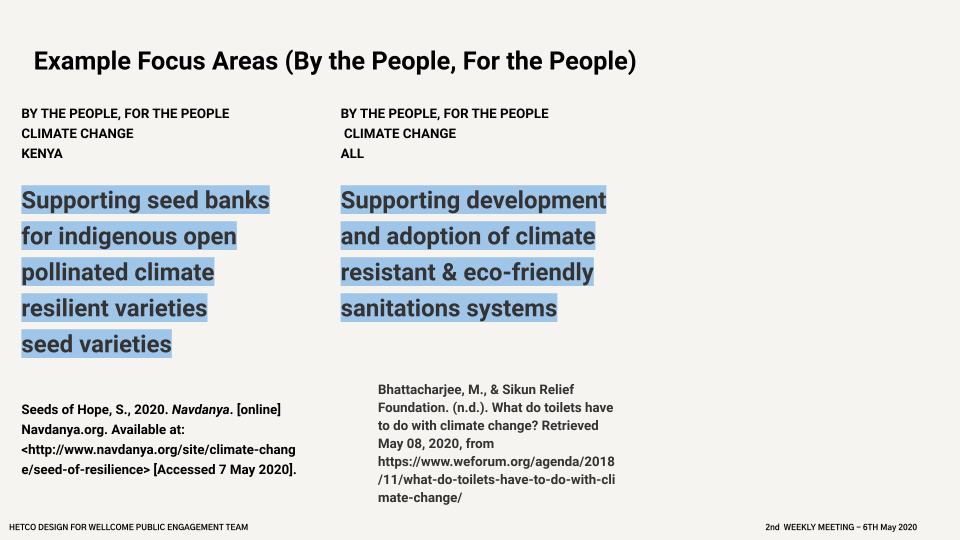In 2020 I engaged with the findings of the Wellcome Global Monitor Report(GWM). The full WGM dataset contains responses to a survey on global attitudes to science and health conducted with over 140,000 people in more than 140 countries. My work focused on Constructs of Trust and Distrust, trust and distrust as different perceived concepts. Moreover blind trust as a concerning nor desirable trait for diverse & pluralistic societies.
Client: Wellcome Trust UK
Title: Uncertainty as a Foundation for Understanding Trust in Science
Type of work: Design Research
Date: June 2020 – July 2020
Extent of the project: 7 weeks, freelance
Title: Uncertainty as a Foundation for Understanding Trust in Science
Type of work: Design Research
Date: June 2020 – July 2020
Extent of the project: 7 weeks, freelance

Needs (inferred from findings)
“What I would really love to understand is how the changes in climate affect my health and that of the community. The way we can sit down as a community and discuss climate changes and how that is going to help our lives in future.”1
Science needs to counter the loss of Belief In Science As Objective Truth by:
Hypotheses
Directions / Ideas for Next steps
“What I would really love to understand is how the changes in climate affect my health and that of the community. The way we can sit down as a community and discuss climate changes and how that is going to help our lives in future.”1
Science needs to counter the loss of Belief In Science As Objective Truth by:
- Working hard to ensure people do not isolate themselves from science
- Understanding existing trusted sources in a community
- Strengthening science communication methods at a country level
- Experimenting with participatory methods of public involvement
- Improving scientific knowledge and literacy
- Being sensitive to pre-existing socio-political beliefs and incidents of mis-conduct from science and technology actors which shape response to new information
Hypotheses
- Acknowledging incidents of mis-conduct of science and technology actors can help build future trust
- Communicating uncertainty that has predictable bounds without overwhelming the public with the discussion of factors involving uncertainty that can’t be quantified - can help enhance trust2
- The greater the trust in objectivity of society, the greater the trust in objectivity of science
Directions / Ideas for Next steps
- Quantitative: Integrating longitudinal data about “Attitudes to Science” from the World Values Survey for India, Thailand, Kenya and South Africa to learn about trends
- Secondary Research: Developing timelines for socio-political factors and incidents of mis-conduct of science and technology which have affected “Attitudes to Science”
- Secondary Research: Understanding communication framings which have been successful at a country level
- Secondary Research: Understanding existing trusted sources in a community and types of public involvement which have been successful
- Contextual Enquiry: Understanding lived experiences of encountering health and science information from diverse sources and the role it plays in an individual’s decision making - for each priority area
1 Fact & Story. (2020). Voices of the Public: What People Think About Three Health Challenges.
2 Howe, L. C., MacInnis, B., Krosnick, J. A., Markowitz, E. M., and Socolow, R. (2019). Acknowledging uncertainty impacts public acceptance of climate scientists’ predictions. Nature Climate Change, 1-5.
2 Howe, L. C., MacInnis, B., Krosnick, J. A., Markowitz, E. M., and Socolow, R. (2019). Acknowledging uncertainty impacts public acceptance of climate scientists’ predictions. Nature Climate Change, 1-5.
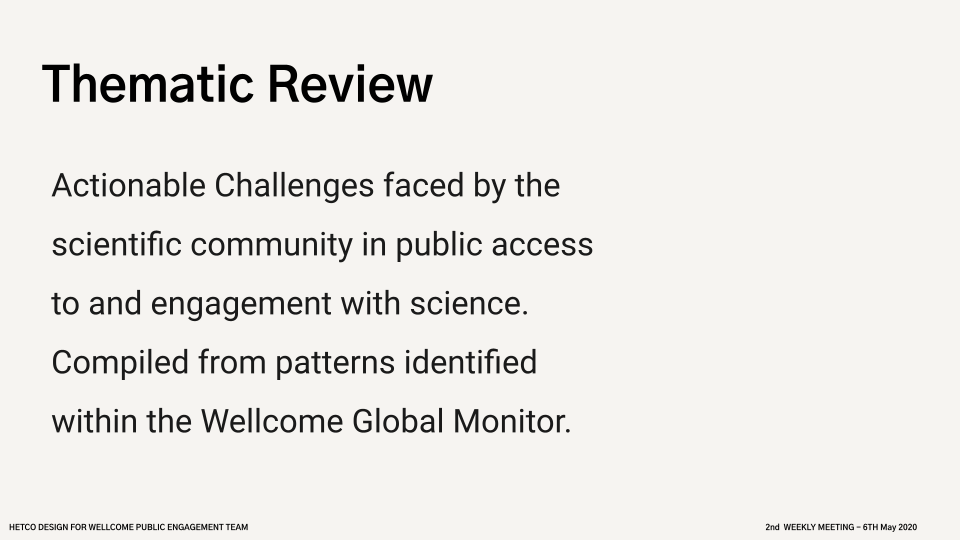
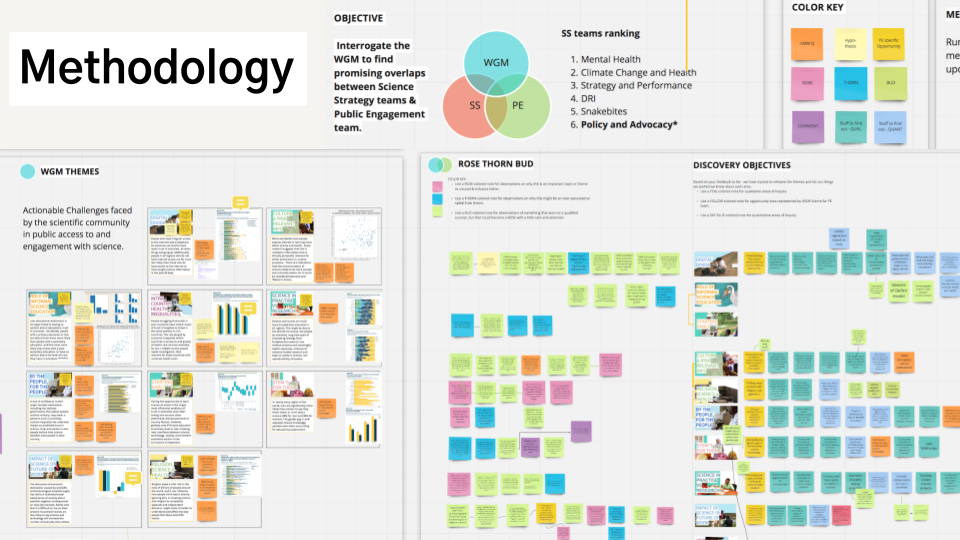
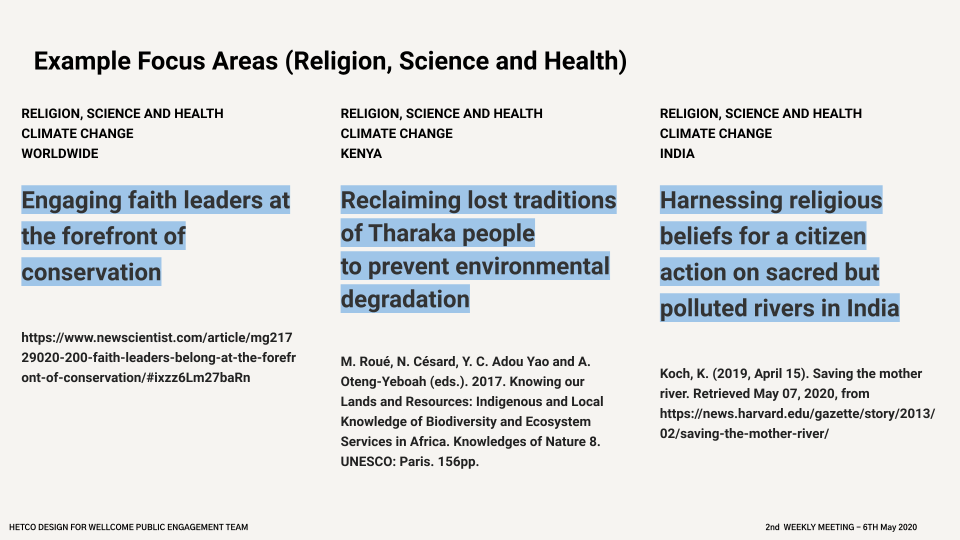
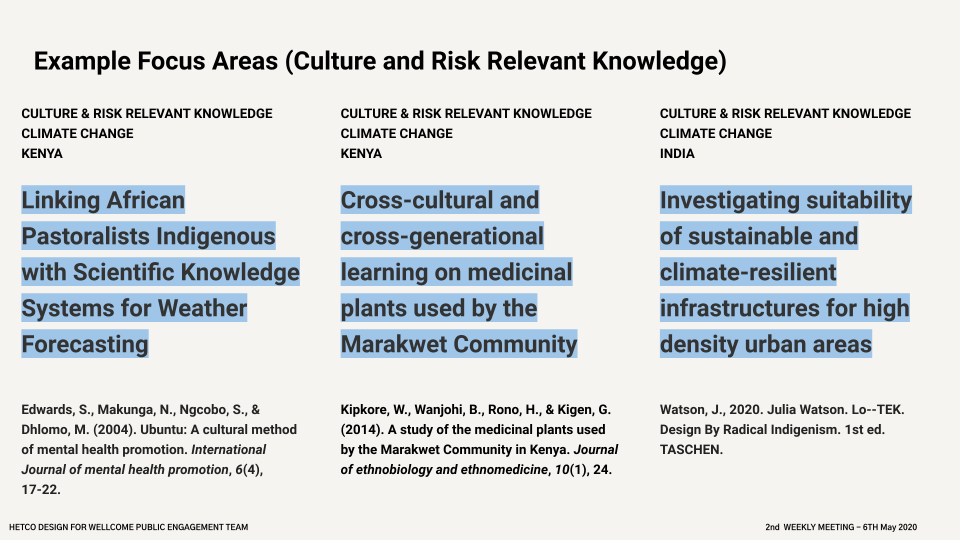
Om chanting doesn’t just give relief from anxiety and tension but its regular chanting makes you feel peaceful from within and less distracted while doing your job. #GuidedMeditationByBapuji3
“If you believe in God and Superstitions, then no problem, you can but first give preference to medication.”4
Ankit Gajakosh
Needs (inferred from findings)
Science needs to counter the drop in authority it faces, even before a conflict occurs by:
- Working with religious leaders rather than against them.
- Regular and active community engagement - not just in critical periods.
- Being sensitive to traditional belief systems, finding opportunities for nudges.
- Communicating the uncertainties and limitations of science to counter problems in the short-term (example : time taken to develop vaccines).
Hypotheses
- The more the alignment between existing belief systems, the less of a plunge in authority of science during a critical period.
- The more regular and active the public engagement, the less of a plunge in authority of science during a critical period.
- The more the focus on similarities and shared interests of science and religion, the lower the chance of competing public narratives.
Directions / Ideas for Next steps
- Hybrid methods : Mapping location of religious settings and listing informal networks.
- Secondary Research / Contextual Enquiry : Understanding lived experiences for each group and testing communication framings which can work well
- Secondary Research / Contextual Enquiry : Listing the religious and traditional practices, knowledge, beliefs and future thinking relevant to the science strategy areas for each country area.
- Secondary Research : Understanding the historical scenarios where religion and science have conflicted.
3 Demos. (2020). What matters to the public in relation to key global health challenges?
4 Fact & Story. (2020). Voices of the Public: What People Think About Three Health Challenges.

